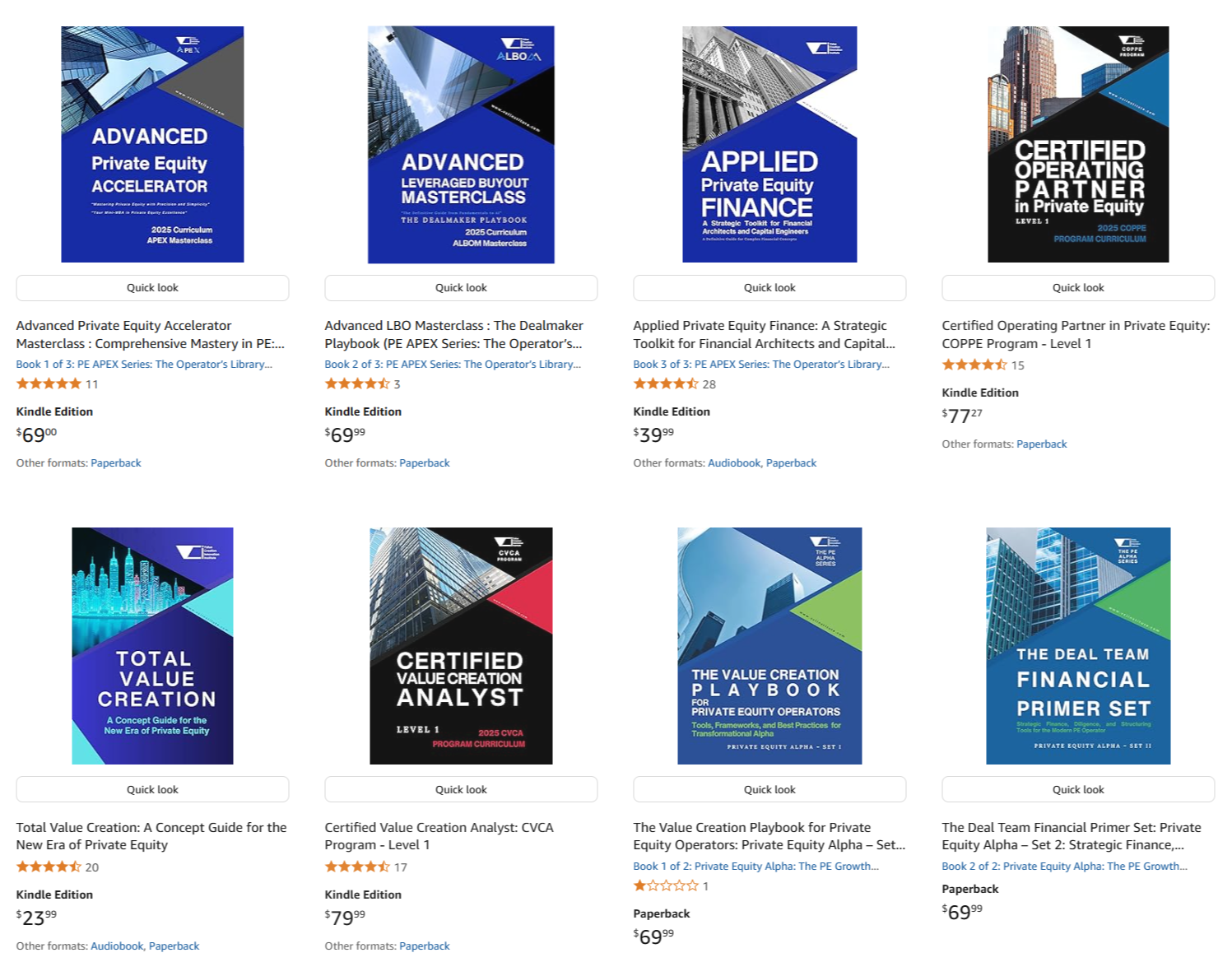The Entreprneurial Business Gardener: Cultivating Revenue Trees for Perennial Profits
May 14, 2025
Entrepreneurs and many Organizations such as SME's are akin to vast gardens where seeds of ideas are planted, nurtured, and harvested for value. Yet, many businesses find themselves trapped in monoculture—relying on a single product or revenue stream—making them vulnerable to market fluctuations and competitive pressures.
Welcome to The Entrepreneurial Business Gardener framework, an innovative approach by VCII that transforms the way we perceive and manage businesses. Just as a skilled gardener cultivates a diverse array of revenue trees to yield a bountiful and sustainable harvest, a savvy CEO or business owner must nurture multiple revenue sources, nourish them with strategic insights, and harvest profits that can be replanted for continuous growth.
This framework delves deeper than mere metaphors, offering actionable strategies and creative insights to help businesses thrive in today's complex environment. Let's embark on a journey where revenue trees become profit fruits, and your business garden flourishes perennially.
The Five-Pillar Entrepreneur Business Gardening Platform - by VCII
Pillar 1: Sowing the Seeds of Success – Embracing a Growth Mindset
The Soil: Cultivating a Fertile Ground for Innovation
Just as rich, fertile soil is essential for a garden's growth, a growth mindset is the foundational bedrock for any thriving business. Coined by psychologist Carol Dweck, a growth mindset embraces challenges, persists in the face of setbacks, and sees effort as the path to mastery.
Nurturing the Growth Mindset
-
Embrace Challenges as Opportunities
- Example: When faced with a declining market share, instead of cutting costs indiscriminately, a growth-minded CEO explores new markets or innovates products.
-
Foster a Culture of Continuous Learning
- Action: Implement regular training and development programs to keep the team agile and adaptable.
-
Encourage Experimentation and Accept Failure
- Insight: Failure is not the opposite of success; it's part of the journey. Just as a gardener experiments with different seeds, businesses should trial new ideas.
-
Seek Diverse Perspectives
- Strategy: Build a diverse team to bring a variety of ideas and solutions to the table.
Table 1: Fixed Mindset vs. Growth Mindset in Business
|
Aspect |
Fixed Mindset |
Growth Mindset |
|---|---|---|
|
Challenges |
Avoids challenges |
Embraces challenges |
|
Obstacles |
Gives up easily |
Persists in the face of setbacks |
|
Effort |
Sees effort as fruitless |
Views effort as a path to mastery |
|
Feedback |
Ignores useful negative feedback |
Learns from criticism |
|
Success of Others |
Feels threatened |
Finds lessons and inspiration in others' success |
|
Result |
Stagnation, early plateau |
Higher levels of achievement |
Pillar 2: Cultivating a Diverse Revenue Forest
The Canopy: Planting Varied Revenue Trees
In a garden, diversity ensures resilience. Similarly, diversifying revenue streams protects businesses against market volatility and opens doors to new opportunities.
Key Revenue Trees to Plant
-
Product Trees
- Fruit: Tangible goods sold to customers.
- Strategy: Innovate product lines to meet evolving customer needs.
-
Service Trees
- Fruit: Intangible services providing value.
- Strategy: Bundle services with products for enhanced customer experience.
-
Subscription Trees
- Fruit: Recurring revenue through memberships.
- Strategy: Offer tiered subscriptions for different customer segments.
-
Digital Trees
- Fruit: Online platforms and e-commerce channels expanding market reach.
- Strategy: Leverage SEO and digital marketing to drive traffic.
-
Licensing and Franchising Trees
- Fruit: Income from intellectual property or brand usage.
- Strategy: License technology or franchise business models.
-
Affiliate and Partnership Trees
- Fruit: Commissions from promoting others' products.
- Strategy: Collaborate with complementary businesses.
Table 2: Diversified Revenue Trees and Their Benefits
|
Revenue Tree |
Benefits |
Example |
|---|---|---|
|
Product Trees |
Immediate cash flow, customer acquisition |
Selling electronics in retail stores |
|
Service Trees |
Higher margins, customer loyalty |
Offering installation services |
|
Subscription Trees |
Predictable revenue, customer retention |
Software-as-a-Service (SaaS) platforms |
|
Digital Trees |
Global reach, scalability |
E-commerce websites |
|
Licensing and Franchising Trees |
Low operational costs, brand expansion |
Franchising a restaurant chain |
|
Affiliate and Partnership Trees |
Low investment, passive income |
Affiliate marketing for online products |
Strategies for Cultivating Revenue Trees
-
Market Research and Customer Insights
- Action: Utilize data analytics to understand customer behavior and identify gaps in the market.
-
Innovation and Product Development
- Approach: Invest in R&D to create unique offerings that stand out.
-
Strategic Alliances
- Opportunity: Partner with other businesses to co-create value and access new customer bases.
Pillar 3: Nourishing Growth – EBITDA as the Essential Nutrient
The Fertilizer: Feeding Your Revenue Trees with EBITDA
Just as plants need nutrients to grow, businesses require strong financial health to expand. Earnings Before Interest, Taxes, Depreciation, and Amortization (EBITDA) serves as a key indicator of operational performance and cash flow.
Why EBITDA Is the Essential Nutrient
-
Operational Efficiency: Reflects the company's ability to generate profits from operations.
-
Investment Attraction: A healthy EBITDA attracts investors and facilitates access to capital.
-
Valuation Metric: Often used in valuation multiples for mergers and acquisitions.
Enhancing EBITDA – Fertilization Techniques
-
Cost Optimization
- Method: Streamline operations to reduce waste and lower production costs.
- Tool: Implement lean management practices.
-
Revenue Enhancement
- Method: Upselling and cross-selling to increase average transaction value.
- Tool: Utilize customer relationship management (CRM) systems.
-
Process Automation
- Method: Invest in technology to automate repetitive tasks.
- Tool: Adopt enterprise resource planning (ERP) systems.
-
Supply Chain Management
- Method: Negotiate better terms with suppliers and optimize inventory levels.
- Tool: Use just-in-time (JIT) inventory systems.
Table 3: Impact of EBITDA Improvement Strategies
|
Strategy |
Potential EBITDA Impact |
Implementation Complexity |
|---|---|---|
|
Cost Optimization |
High |
Medium |
|
Revenue Enhancement |
Medium |
Low |
|
Process Automation |
High |
High |
|
Supply Chain Management |
Medium |
Medium |
Pillart 4: Harvesting and Replanting – Managing the Profit Fruits
The Harvest: Turning Profits into Seeds for Future Growth
After nurturing your revenue trees, it's time to harvest the fruits—profits. But a skilled gardener doesn't consume all the harvest; they save seeds for the next planting season.
Strategies for Managing Profits
-
Reinvestment for Growth
- Action: Allocate profits to high-return projects, such as R&D or market expansion.
- Benefit: Fuels innovation and keeps the business ahead of competitors.
-
Debt Reduction
- Action: Use profits to pay down debt.
- Benefit: Reduces interest expenses and improves financial stability.
-
Dividend Distribution
- Action: Return profits to shareholders.
- Benefit: Enhances investor satisfaction and can boost stock prices.
-
Reserve Building
- Action: Set aside profits as cash reserves.
- Benefit: Provides a safety net during economic downturns.
Balancing the Harvest – The Profit Allocation Matrix
Table 4: Profit Allocation Decision Matrix
|
Priority |
Growth Stage |
Recommended Allocation |
|---|---|---|
|
High |
Startup/Early Growth |
70% Reinvestment, 20% Reserves, 10% Debt Reduction |
|
Medium |
Growth/Expansion |
50% Reinvestment, 30% Debt Reduction, 20% Reserves |
|
Low |
Maturity |
30% Reinvestment, 40% Dividend, 30% Reserves |
Pillar 5: Perpetual Cultivation – Re-seeding for Continuous Growth
The Cycle: Embracing the Seasons of Business Growth
A garden thrives through cycles of planting, growth, harvest, and renewal. Similarly, businesses must continually re-seed—innovate, adapt, and evolve—to sustain long-term success.
Strategies for Continuous Growth
-
Innovation Culture
- Action: Foster an environment where new ideas are encouraged and tested.
- Example: Implement "innovation days" where employees can work on passion projects.
-
Market Adaptation
- Action: Stay attuned to market trends and adjust offerings accordingly.
- Tool: Utilize real-time market analytics.
-
Talent Development
- Action: Invest in employee training and career development.
- Benefit: Enhances skills and reduces turnover.
-
Sustainable Practices
- Action: Incorporate eco-friendly processes.
- Benefit: Meets regulatory requirements and appeals to conscious consumers.
-
Digital Transformation
- Action: Leverage digital technologies to enhance efficiency and customer engagement.
- Tool: Adopt artificial intelligence and machine learning for data-driven decisions.
Embracing Agility – The Bamboo Strategy
Just as bamboo bends with the wind but doesn't break, businesses must be agile to withstand market disruptions.
-
Key Principles:
- Flexibility: Be willing to pivot strategies when necessary.
- Resilience: Build systems that can absorb shocks.
- Speed: Act swiftly in response to changes.
Harvesting Success with The Entrepreneurial Business Gardener Framework
The Entrepreneurial Business Gardener 5-pillar framework is more than a metaphor—it's a strategic blueprint for cultivating a robust, diversified, and sustainable business. By sowing the seeds of a growth mindset, planting and nurturing diverse revenue trees, nourishing growth with EBITDA, wisely managing profit fruits, and perpetually re-seeding for the future, your business can achieve perennial success.
Just as a master gardener delights in the beauty and bounty of a well-tended garden, you too can revel in the flourishing ecosystem of your business—rich with opportunities, resilient in the face of challenges, and abundant in value creation.
About VCII
The Value Creation Innovation Institute (VCII) is a beacon for businesses seeking transformative growth and sustainable success. We specialize in crafting innovative frameworks like The Business Gardener to empower CEOs, entrepreneurs, and business leaders.
Our Expertise Includes:
- Strategic Growth Planning
- Operational Efficiency Optimization
- Financial Performance Enhancement
- Leadership Development and Coaching
At VCII, we believe in nurturing businesses from the ground up, fostering environments where innovation thrives, and value creation is the harvest of diligent cultivation.
Discover more at www.vciinstitute.com.
#BusinessGardener #RevenueTrees #ProfitFruits #GrowthMindset #EBITDA #BusinessStrategy #VCII #ValueCreation #SustainableGrowth #Innovation
We have many great affordable courses waiting for you!
Stay connected with news and updates!
Join our mailing list to receive the latest news and updates from our team.
Don't worry, your information will not be shared.
We hate SPAM. We will never sell your information, for any reason.


